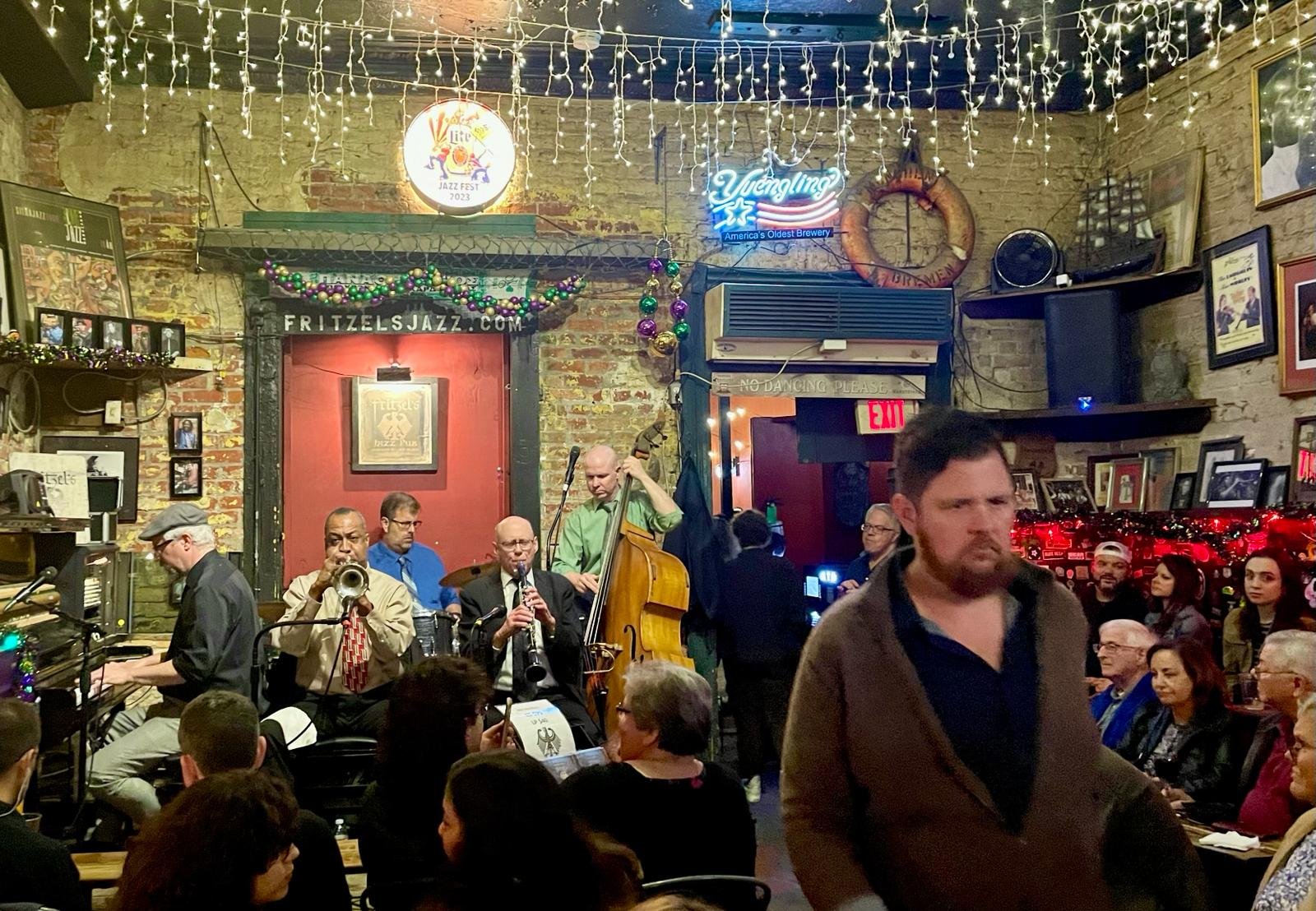After months of preparations, the OSM2024 was finally held last February in New Orleans, Louisiana (USA), gathering up to 6000 scientists, stakeholders and representatives of the multidisciplinary ocean science communities from all over the world. CHASE members Catarina V. Guerreiro and Afonso Ferreira (MARE-UL & IDL/ Ciências ULisboa), and Jan-Berend Stuut (NIOZ/Vrije Universiteit Amsterdam) attended the meeting to host a scientific session and to present their most recent scientific findings from the Atlantic and Southern Ocean.
Catarina, Afonso and Jan-Berend at OSM2024, recently held in New Orleans, Lousiana, USA (photo credits: Jan-Berend Stuut).
Catarina and Jan-Berend, together with Amanda Frossard (University of Georgia, US) and Andrew Wozniak (University of Delaware, US) were the organizers and conveners of Session AI009 on “The Biogeochemistry of Air-Sea Exchange Processes”,as part of the general theme “Air-Sea Interactions”. The goal of this session was to bring together colleagues from the SOLAS (Surface Ocean, Lower Atmosphere Studies) community as well as anyone interested in aerosol emission, transport and deposition and its marine-environmental effects. In addition to chairing the session, they also presented their findings on the influence of Saharan Dust in the NE Atlantic, resulting from ongoing collaborations between Ciências ULisboa, NIOZ, PML and the University on East Anglia.
OSM24 brought together almost 6,000 attendees to share science, meet collaborators, and enjoy time together (Photo credits: Jan-Berend Stuut).
Catarina presented a poster on “The response of coccolithophore communities to Saharan dust deposition in the tropical North Atlantic”, featuring recent results from Guerreiro et. (2023), a paper based on material collected during the Atlantic Meridional transect (AMT28). Jan-Berend presented a poster titled “Monitoring present-day Saharan dust above and below the ocean surface”, where he showed the two long-term ocean monitoring stations off NW Africa, led by the NIOZ and MARUM since 2012 and 1998, respectively.
Catarina presenting her poster featuring data from a recent paper published in Frontiers in Marine Science that provided multiparametric evidence on the growth of tropical coccolithophore species at the expense of Saharan-driven nutrient input in the heavily stratified tropical North Atlantic.
Jan-Berend presenting Stations Laura/M1 and Carmen/CB during the poster session at the OSM 2024. Saharan dust is collected from the atmosphere using two tethered buoys (Carmen & Laura) equipped with dust collectors on which air is being pumped over filters at a temporal resolution of threeweeks/filter. In parallel, dust particles deposited at the surface of the ocean and sinking all the way down to the deep ocean are sampled at at a temporal resolution of four days using submarine sediment traps at the buoy locations (CB & M1). Get more info about this monitoring program here.
Afonso presented part of his PhD studies currently ongoing at Ciências ULisboa with a talk titled: “Biases in phytoplankton size class models in the Antarctic Peninsula: how well do we know our diatoms?” at Session OB33B on “Phytoplankton Ecology at Large Scales”. In this work, resulting from an ongoing collaboration between Lisbon, Rutgers University, and FURG/GOAL, he highlights the need of making more accurate assessments of microphytoplankton-driven carbon assimilation to validate global and regional models based on phytoplankton size classes. Such calibration is crucial for providing more reliable estimates and projections on the role of marine primary production for CO2 sequestration in the Southern Ocean.
Afonso Ferreira presenting part of his PhD results at OCM2024 (left), and during the Antarctic expedition Operantar 37 (right), in the context of which he started his PhD to explore the impacts of climate change on phytoplankton communities in the Southern Ocean, under the supervision of Ana Brito (MARE/Ciências Ulisboa) and Rafael Mendes (GOAL/FURG). Photo credits: Jan-Berend Stuut (left) and Catarina V. Guerreiro (right).
… and since New Orleans is home to the most amazing live jazz and blues, we also took the unique chance of being there to fully enjoy a few moments of fun and live music :)
Listening to some good old jazz at Fritzels, New Orleans :)





